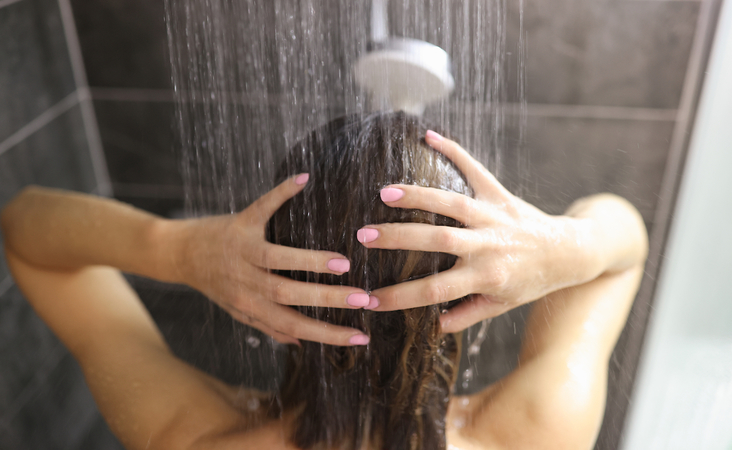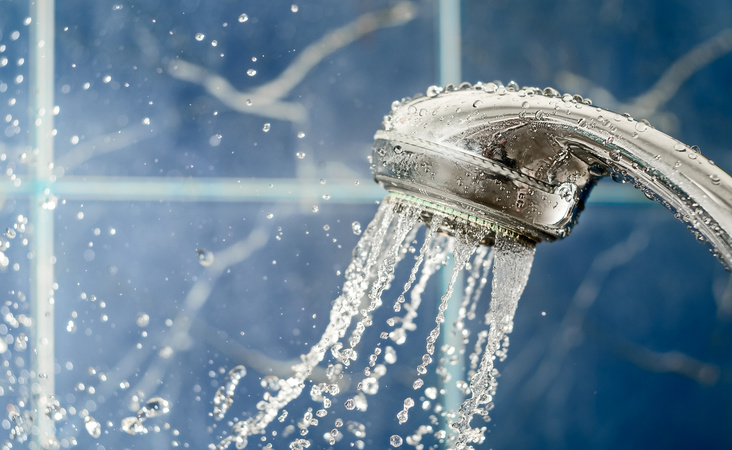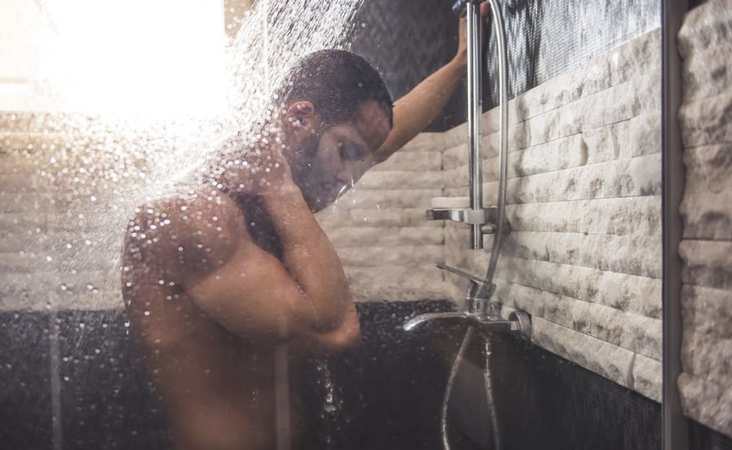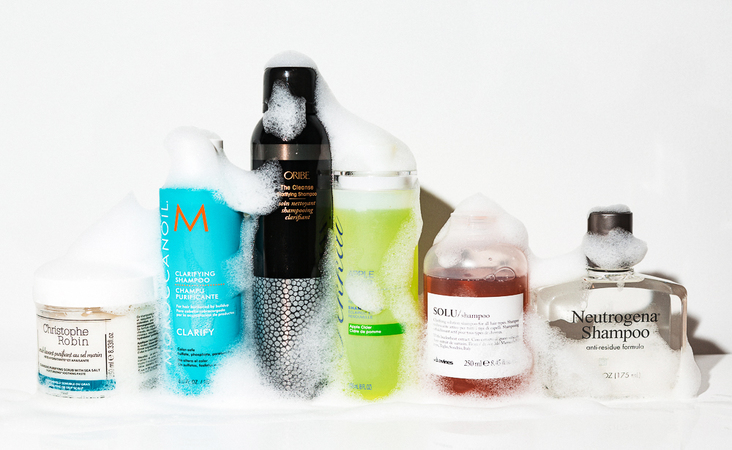Hard Water and Hair Loss | Hairfall Causes and Treatments
- Written by Lordhair Team
- Dec 23, 2021
- |
- 5 min read
 Listen to the full text
Listen to the full textA plethora of health problems and diseases cause hair loss in men and women. While awareness about most hair damaging conditions is growing, a lot of us are unaware of the damaging effects of hard water on hair. That’s right, constantly exposing your hair to hard water can cause breakage and hair loss.
Thankfully, hair experts have found several ways to reverse the hair fall and damage caused by hard water. If you are curious about this hair loss condition and want to discover recovery treatments, then, keep reading!
In this blog, Lordhair - the leading brand of non surgical hair replacement systems - will share everything about hard water and hair fall loss. From meaning, and signs to mineral effects and damage prevention, we will cover all crucial aspects.
Let’s learn about the meaning of hard water first!
What is Hard Water?
Water that contains high amounts of mineral content is called hard water. Surplus quantities of metal cations including calcium, magnesium bicarbonates, carbonates, sulfates, iron, chloride, copper, and zinc in groundwater cause water hardness.
Although metals like calcium and magnesium in water do not have any potential health risk, it does affect the health of your hair strands. Minerals like chloride, iron, copper, silica, lead, manganese, and cadmium impact scalp health and lead to hair loss over the passage of time.

What Exactly Does Hard Water Do to Hair Strands?
You might be wondering, why bottled water companies talk about the presence of minerals in drinking water if hard water leads to hair loss? According to experts, drinking water rich in the aforementioned minerals is good since it lowers the levels of bad (LDL) cholesterol and raises the levels of good (HDL) cholesterol.
It also promotes blood circulation, improves digestion, and helps recover from constipation. But using hard water to wash hair and scalp can adversely affect their health. Here’s an example:
When you take a dive into seawater, it leaves your hair and scalp vulnerable. This happens because of your hair exposure to chloride in coastal areas.
Similarly, exposing your hair to hard water coming out of taps or showers causes mineral build-up on the scalp. It prevents nutrition and moisture from reaching your hair follicles, leaving your hair undernourished and prone to breakage.
In the long run, hard water may boost dandruff, trigger gradual hair thinning, or even lead to permanent hair loss.
Signs of Hard Water Damage on Hair
Washing your hair with hard water regularly can have long-term effects on your hair health. Here are the common signs of hard water damage on hair strands:
- Brittle, crimped, lifeless hair strands with possible split ends
- Droopy and weighed down hair that is hard to style
- Gradual hair thinning
- Frail hair prone to tangles and breakage
- Dry and itchy scalp
Men and women who notice any of the above signs and symptoms should consider visiting a dermatologist ASAP.
Hard Water Minerals With Damaging Effects
Remember we mentioned the presence of different minerals in hard water? Hair experts say that most minerals present in the water influence the hair in a unique way. We have prepared a list of minerals that majorly impact the hair. Here it is!
Calcium carbonate and magnesium sulfate
Two of the most common mineral salts found in hard water! Calcium carbonate and magnesium sulfate slowly pile up on your hair as well as scalp and form a layer that prevents the hair from getting nutrition, resulting in hair loss. They also make the shampoo ineffective and create a residue that stays on your scalp.
Both calcium carbonate and magnesium sulfate cling to your hair shafts, weigh your hair down, and make it limp and heavy. Some hair professionals also state that these minerals in hard water also make your hair susceptible to fungal infections.

Chloride
Moisture in our hair strands makes them shiny and flexible. Chloride sucks out the moisture from the hair by stripping off its natural oil reserves and increasing the chances of damage to the hair shaft. It also irritates your scalp and causes itchiness. When we scratch our itchy scalp repeatedly or aggressively, harm to the skin and hair follicles is inevitable.
Aluminum
One of the most common minerals found in hard water that causes hair loss, aluminum punctures the hair shaft and causes internal damage to your hair. It may influence the hair follicle and decelerate hair growth in men and women as well.
Copper
The high copper content in water boosts the natural hair coloring process and provides the strands a much darker tone than they are naturally supposed to have. Copper causes discoloration of blonde hair and gives it a greenish tint. In short, nothing less than a nightmare for blonde men and women.
Lead
Does your home have old water pipes? If yes, your water may have high lead content in it. For those who don’t know, lead makes the hair strands lose their strength. In other words, it can cause hair loss in the long run.

Iron
We are all aware of the fact that low iron in our body affects our hair. But do you know that too much iron also damages the hair? Yes, it does! Excessive iron discolors the hair and gives it a red tint. It also robs the natural shine of hair strands and makes them dull as well as lifeless.
Sulfate
Another hard water mineral that causes hair loss in men and women. Sulfate shrivels up the hair and removes its elasticity. It also dries up the scalp, leading to dandruff and damaged hair follicles.
Preventing Hair Loss From Hard Water
Like we said at the beginning, there are several methods and treatments to prevent hair loss and thinning caused by hard water. The quicker you act, the faster you will be able to prevent the damage.
The following are the best methods to prevent hair fall caused by hard water:
Water softener
A water softener is a filtration system that removes high concentrations of calcium, magnesium, lead, copper, and other minerals from hard water. A water softener will filter out hard water substances and soften the water to a great extent.
The only problem with water softeners is that they add negatively charged sodium ions to the water. Meaning, they increase salt in water. This sometimes makes the water too soft for cleaning purposes.
Shower filter
Unlike water softeners, shower filters don't soften the water too much. A shower filter will purify the water by removing minerals that could trigger hair loss. It is also less expensive when compared to a water softener.
The right shampoo and conditioner
If the aforementioned solutions don’t work well and washing your hair with hard water is the only option, buy a gentle shampoo and conditioner! Dermatologists say that shampoos that don’t have sulfates, parabens, sodium chloride, harmful colors, and fragrances help remove mineral build-up caused by hard water on the scalp and promote healthy hair growth.
Use a clarifying shampoo once in a while to reverse hair and scalp damage caused by hard water. Also, make sure to use a conditioner that hydrates your hair.

Moisturizing masks
Another effective method to treat hair loss caused by hard water. Moisturizing masks are great for restoring lost moisture in your scalp as well as hair. It will fortify your dull hair and nourish the cuticle layer which gets affected the most by hard water.
We recommend using natural moisturizing agents like honey, coconut oil, avocado, aloe vera, egg white, and lemons to lock moisture and prevent the hair condition from getting worse.
19 home remedies for hair growth and natural thickness.
Hair replacement system
If your hair loss is extreme, then, the best option is to wear a hair replacement system for quick recovery. Also known as a toupee, wig, and hair patch, it’s a non-surgical solution to hair loss that carries no side effects. Attached using clips, tape, or glue, it blends easily with real hair and helps deliver a realistic look.
Check out how amazing Matthew looks after wearing a hair system:
Everything that you need to know about hard water hair loss has been covered. The above methods will help you prevent your hair loss condition from getting worse and boost strand health.
We recommend seeing a dermatologist if your hair condition is really critical. Just make sure to buy it from a trusted supplier like Lordhair and you will get the promise of a premium hair recovery product that comes with a money-back warranty.
Got any queries to ask? Send them to support@lordhair.com and have them answered by our hair experts.
Also read:
Foods to prevent hair loss and aid quick recovery
Men’s hairpieces for sale to save big in 2022
Discover premium hairpieces for thinning hair


